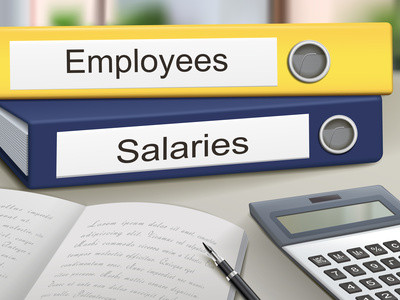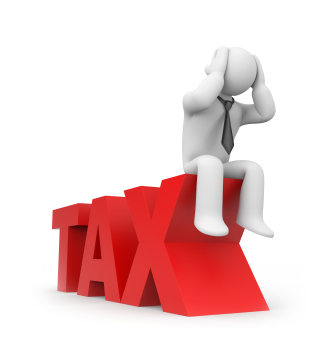Incorporated Owner Salary
(Canada)

Learn about your different options on how to pay yourself when you are the owner of an incorporated business.
I was wondering how to go about paying an owner of an incorporated business.
I know there are different options such as paying a salary, paying out dividends at year end, or even income withdrawals throughout the year. How do I decide the best option? The business is just finishing up its first year and it only has one shareholder.

I'm going to point you to a few articles on my site as this is a topic I think every incorporated business owner should discuss with their accountant ... as mistakes here can be costly and often are not reversible.
A good place to start would be to read my chat on Management Fees and Salaries for Incorporated Businesses. Make sure you check out the links to the CGA series on Owner Manager Remuneration.
As you read through the material, be aware that Personal Service Corporations have special rules which changed dramatically in 2012.
I've also gathered all the forum postings on owner manager remuneration for you ... starting with a three part series authored by Jeff MacFarlane, CA.
I made sure to include the forum posting (found at the end of this post) on Shareholder Wages. It contains some excerpts and references to some excellent and pertinent articles written by various CA firms. It discusses the advantages and disadvantages of the various ways to remunerate an owner/manager ... and when payroll taxes are required.
Remember that the information I present on CCPC is meant to give you talking points to discuss this complex issue more throughly with your accountant. I specialize in sole proprietorships not corporate business structures. I hope this helps you out.
Salary or Dividends?
by Jeff MacFarlane, CA
(MacFarlane & Company Chartered Accountant)

Owner Manager Remuneration
Article reprinted with permission
Part three in this series by Jeff MacFarlane, CA has now been published. Enjoy!
Small business owners often ask me if they should be taking dividends from their corporation or paying themselves a salary. There are a few factors to consider in making this decision...but tax usually isn't one of them. Let me show you what I mean.
Let's assume that a business generated net income before tax and owner remuneration in 2011 of $60,000. The owner could take out a salary of $57,782.40 and the corporation would pay the employer's portion of the CPP on that salary of $2,217.60. So the corporation would have no income and pay no tax. The owner would take the salary of $57,782.40 less the deduction for the employee's portion of CPP which is also $2,217.60. He or she would pay personal tax on the salary of $11,592.00. The net amount of cash that the owner gets to put in his or her pocket is $43,972.80.
On the other hand, the owner could decide to take a dividend. The corporation would pay corporate tax on the $60,000 which, in Alberta, would be $8,400. This means the owner's dividend would be $51,600. The personal tax on that dividend would be $3,598. So the cash the owner gets to keep is $48,002.
So by paying a dividend, the owner gets to keep an additional $4,029! But wait a minute. The employee has also earned a pension credit. So that we are not comparing apples and oranges, we should deduct both portions of the CPP which is $4,435.20 from that difference. So really there is about a $406 advantage to taking the salary. And that $406 works out to 2/3 of one percent of the original $60,000. or about 3.5 % of the total tax.
Next month we'll talk about some other things to think about when making the salary / dividend decision.
Part 2 of Salary or Dividend?
by: Jeff MacFarlane, CA
Article reprinted with permission
This is the second part of a three part article discussing whether small business owners should take dividends or salary from their corporation. Last month we ran through the math and I showed you that there is not much of a difference in total tax. But what other considerations might there be?
Well, dividends have two big drawbacks: First dividend income is not eligible income for CPP purposes. That means that if you graduated from high school, started a corporation and paid yourself nothing but dividends, when you turned 65 and applied for your Canada Pension, you would not get one. Second, dividends are not eligible income for RRSP purposes. The amount that you can contribute to an RRSP is based on your eligible income from prior years. Again, if paid yourself nothing but dividends, you would never be able to make an RRSP contribution.
Now these two issues may not be a problem for you specifically. If you have been an employee either of your own corporation or of somebody else, you will already have built up some CPP entitlement. I also have a number of younger clients who are not sure that CPP will be around by the time they want to retire. So instead of paying into the plan they are take the employer and employee contributions that they would be making and investing them themselves.
As for RRSP's, many of us have built up RRSP contribution room from previous employments. This means that we can still make RRSP contributions even though we are now earning only dividend income.
We'll wrap up this series next month with the problem with salaries and some final thoughts.
Salary or Dividends? Part Three
by: Jeff MacFarlane, MacFarlane & Company Chartered Accountant
This is the last of a three part article discussing whether small business owners should take dividends or salary from their corporation. In the first part, we ran through the math and I showed you that there is not much of a difference in total tax. Last month we looked at how paying dividends can adversely affect your CPP and RRSP contributions. Paying a salary has its own set of issues.
First whenever a corporation pays a salary to a related person (the owner or the owners spouse or children) we always have to consider the reasonableness of the salary in relation to the duties performed. If the CRA determines that a salary is not reasonable they could deny the deduction to the corporation while still taxing the recipient. Now the CRA has taken the position that they would not challenge the reasonableness of any salary paid to an owner who is truly active in the business no matter the amount. The problems is the salaries of inactive persons such as the spouse who does a little bookkeeping and promotion. I always tell clients that if they would not pay my spouse the same amount to do the same job then we have a problem. There is no reasonability test for dividends.
The other issue with a salary is just the pain in the butt factor. You have to remember to complete the remittance and pay the withholdings on a salary by the 15th of the following month and do the T4's in February. If you are out of town a lot or not good at paperwork this can be a problem. With dividends we do a T5 once a year and that is it.
The last thing I want to say about the salary / dividend question is that our decision is never written in stone. We can pay salary or dividends or both and we can change the mix at any time. It all depends on the personal situation of the owners.
About the author:
Jeff MacFarlane is the principal of MacFarlane & Company Chartered Accountant. He has been a Chartered Accountant since 1992. After articling with Deloitte & Touche in Calgary, he worked in the tax departments of Chevron Canada Resources and Northstar Energy (now Devon).
His practice has been providing a full range of accounting and tax services for the past ten years. Clients are primarily small, owner-managed businesses. The firm motto is “Helping make sense of business”.
T2Canada.ca is the virtual office of MacFarlane & Company Chartered Accountant.
CCPC Dividends vs. Salary
by Michelle
(Ontario)

Paying owners (shareholders) with a dividend at year end? There are rules ... one which requires a dividend declaration for filing in your Minute Book.
I'm looking for an explanation for shareholders draw being converted to a dividend at year end rather than being paid as employees of the company.
I know taxes are lower on dividends but am not sure of all of the ramifications this has on the owners/shareholders, such as CPP.
Any information would be greatly appreciated.

Hi Michelle,
I'll give you a few links to information on this site regarding the salary versus dividend debate.
Just be aware, that as far as I know, there is no such thing as a shareholder's draw.
Sole proprietors take draws. Owner/Managers of corporations are employees so they are paid as employees. If they take a "draw", it is likely a withdrawal from the shareholder loan account ... an account that tracks contributions and withdrawals made by the shareholders.
Here is the information that I think will help you:
- Management Fees and Salaries for Incorporated Businesses and Shareholder Wages discuss owner manager remuneration, each from slightly different perspective. The links to both chats are found at the start of this post.
- Shareholder Loans discusses the very specific rules under which money can be loaned to a shareholder or a family member. There are very complex and inflexible rules around withdrawing cash or assets from the business for personal use.
- Shareholder Loans and Reimbursement of Personal Expenses discusses how the shareholder loan account works including how to track shareholder contributions and shareholder withdrawals.
Within each article referenced, there are links you will need to follow to articles by accountants to get a more informed picture.
As stated at the beginning of this chat on how to pay yourself when you are the owner of an incorporated business ... It is always advisable to speak with an accounting professional (CA, CGA) before doing anything to avoid negative consequences. There is very little they can do to help you after the fact if you misunderstood the rules.
The last thing to bring to your attention surrounding the payment of dividends to owner managers is the requirement to declare dividends ahead of time and file the legal notice in your Minute Book.
Editor's note: This forum posting was updated on January 9, 2016.
Comments for CCPC Dividends vs. Salary
|
||
|
||
|
||
|
||
Shareholder Loan Account

You need to be careful that money you remove from the corporation is not at risk to be taxable. Know the rules!
When a business owner withdraws a personal amount from the business bank account, can you debit shareholder loan account (2000) and credit the bank account?

If the business is incorporated, yes you could make that entry. See my Loans to Shareholder chat (link provided earlier in this article) for more information as you need to be careful that money you remove from the company is not at risk to be taxable.
Shareholders who are ACTIVE in the corporation should be treated as employees with drawings subject to source deductions. There are some excellent reference articles referred to Kim's post on Shareholder Wages (found at the end of this article).
If the business in not incorporated, then your entry would be Debit Owner's draw and Credit Bank account. See How to Pay Yourself as a Business Owner for more information.
Comments for Shareholder Loan Account
|
||
|
||
|
||
|
||
|
||
How to Pay Myself
by Loretta
(Toronto)

How to Pay Yourself If You Are Incorporated
I am a business consultant who incorporated in Ontario last year. My earnings get deposited into my business acount.
I'd like to draw a small salary in order to take advantage of lower personal tax rates so I withdrew a small amount from my business account and transferred it to my personal account last December. By transferring this amount, does this automatically become personal salary at tax time or do I have to issue myself a T4?
Thanks...

Hi Loretta,
As you are incorporated and active in the corporation, you are now an employee ... so yes you need to issue a T4.
However, as an employee, you also have to deduct all the payroll taxes. Source deductions are due on the 15th of the month following the month you were paid ... so you may have to pay some penalties and interest for not remitting your source deductions (form PD7A) on time. It is better to calculate and remit now than wait for a Pensionable and Insurable Earnings Review (PIER) from CRA sometime in June.
I'm going to suggest that you read through all my notes on Canadian Controlled Private Corporations (CCPC) so you don't get yourself in hot water ... or stuck in a place an accountant won't be able to get you out of.
Be aware, if you are a personal service business, the CRA has special rules just for you!
Pay particular attention to your options for removing money from the corporation. One of my favorite articles is by Lohn Caulder, CA entitled Payroll (T4) Advantages for Owner-Managers.
If you have any questions after going through the material, please post back and I'll do my best to help you out.
Owner Draws - Incorporation
by Sarah
(Mississauga, Ontario)

When can a shareholder / owner manager withdraw money from a corporation tax free?
My client has a incorporated numbered company. They have been drawing/paying themselves from the numbered company bank account, ie; writing a cheque to themselves or withdrawing cash from the business bank account and depositing it into their personal bank account. Therefore those draws are personal income.
My question is where would I enter this income on my clients T1? T2125 is not quite the right wording I was looking for, because my client is not a sole proprietor but the director/owner of this numbered company, which I am doing the T2 for as well.
Line 130/other income seems to vague, it is not a disposition or from dividends, just a cash withdraw or cheque. CRA site is not very informative on this subject.
Thank you very much for any help. :)

Sarah,
Jeff MacFarlane, CA wrote a 3 part series on Owner Manager Remuneration that lays out owner manager remuneration options available in a very uncomplicated way.
If the owners have shareholder loan balances that are in a credit balance, they can remove money tax free. All taxes have already been paid on the monies. The shareholder loan withdrawals do not get reported on a personal tax return.
If the shareholder loan balances are in a debit position, the rules are a bit different. Generally, a taxable benefit arises. If your clients are in this position, I would recommend they pay a visit to a certified accountant (CA or CGA) to get specific advice to their situation.
It is normally recommended that owner managers (shareholders who are active in the company) put themselves on payroll.
Read all the articles / chats I've done on CCPCs (See my index on CCPCs) ... follow all the links to the reference articles. If you don't understand what the articles are saying, you should not be preparing a T2 without the supervision of a certified accountant. Some things can't be undone if the record keeping was not done at the appropriate time. It can be very costly to the owner managers if remuneration strategies are implemented incorrectly.
Taking a Salary
by Rosanne
(British Columbia)

I am an incorporated company. I want to start taking a salary.
Do I need to apply for a payroll number with the CRA?
Do I have to deduct EI and Income Tax?
I am 65 so I don't need to deduct CPP.

Hi Rosanne,
Nice picture! :0)
Yes. You need to contact CRA and they will open up a payroll account for you. As you are incorporated, you should already have your BN. Your payroll number will be your BN number with RP0001 for the ending numbers.
As an owner manager, you are not eligible for regular EI. Therefore, do not deduct EI premiums.
You must however deduct income tax at the source and remit it on form PD7A or online. CRA mails the PD7A out to you once you have opened a payroll account.
If you are drawing your CPP pension, then you are correct, you are exempt and don't have to deduct CPP. However, if you aren't receiving your CPP yet, you must deduct CPP until the month in which the employee (that would be you) reaches 70. In 2011, new rules were introduced and you can opt into CPPif you are between 60 and 70 even if you are already drawing your pension.
I hope you take time to glance over my series on Canadian Controlled Private Corporations ... have a great week Rosanne!
Management Fee Bonus
by Lucy
(Markham)

Management Fee Bonus accrued in 2008, paid in 2009. Is a T-slip required?
Hi,
I'm fairly new at bookkeeping for corporations and deal mainly with small sole-proprietors. This year I took over the books for a small corporation.
Using the Trial Balance and Adjusting Entries provided by the large accounting firm the client deals with for tax planning purposes, I set up the books and am now putting together T-slips.
One of the adjusting entries showed an accrual for a large management fee bonus in 2008. Do I need to put this on a T4 slip or T4A slip?
The only thing the firm could tell me was that it was going to be picked up on the client's 2009 tax return and offered no further assistance.

Due to the time constraints of the T slip deadline ...
... which is usually February 28 ... but this year it falls on a Sunday so ... the deadline for T slips is now Monday, March 1 ...
... I answered Lucy by email.
Before I post my response to Lucy ... and her reply back, let's see if any of you loyal work from home bookkeepers respond ... I get tired of listening to myself!!
As I see it, the dilemma seems to be that the accrued fee was paid within 180 days of 2009 ... but no withholding taxes were taken. Now it's 2010 with the T slip deadline looming ... what would you do?
Comments for Management Fee Bonus
|
||
|
||
|
||
|
||
|
||
|
||
Bonus or Salary

How to determine if I should pay employee some money as a "bonus" or "salary"?
I'm setting up payroll for the first time with our company and I want to pay myself a lump sum basically for work that I did last year for free. I can't figure out what makes more sense, to pay it as a salary or a bonus cause I see they are taxed differently.
What difference does it make to me or the company or what? Help?! Thank you!

I am going to assume by your question that the company is incorporated.
You are correct that these options have different tax consequences. In my opinion, this is the type of conversation you should hold annually with your accountant.
I have gathered some information on owner manager remuneration that may be helpful to you.
Make sure you follow all the links.
Another resource you may want to try is The Tax Guy at answers.taxresource.ca (See also deanpaley.com). He also takes questions. He is a professional accountant and better versed in the tax ramifications pertaining to this type of financial decision.
Remittance on Shareholder Wages
by Kim
(Canada)

CRA remittances are usually required on Shareholder wages.
When Amending a T4 and T4 summary to add management wages for the Shareholder that were missed, do you have to deduct the tax from the Shareholder, or let him pay it when he files his personal tax return?
I know the CPP must be deducted and submitted, but I thought the tax portion was optional to have the Corporation deduct and pay, or let the Shareholder pay it on his personal return.
I know this is late, but I'm working on this right now, so any help ASAP will be Hugely appreciated. Thanks so much. Kim

Hello Kim,
I am fairly certain that the income tax must be withheld and remitted on the PD7A when it is paid. As I don't work a lot with owner manager remuneration of CCPCs, I went looking for a source for you.
I found an article by Cunningham Chartered Accountants titled Forms of Remuneration* that discusses the advantages and disadvantages of the four most common types of owner-manager remuneration. Unfortunately, there is no date on the document to say when it was prepared. It says under Bonus,
"Source deductions (eg. income taxes, CPP, EI (if applicable)) are due at the time the bonus is paid to the recipient."
And again under Disadvantages of Bonus,
"The bonus is subject to tax when received by the owner-manager or employee."
In a different article titled Payroll (T4) Advantages for Owner-Managers** by Lohn Caulder Chartered Accountants, it states:
"Clients of our firm who are owners of their own incorporated businesses will be familiar with our oft-stated recommendation to treat themselves as “employees” of their own corporation, and in so doing, subject themselves to regular, monthly remittances of personal income tax and Canada Pension Plan contributions. This also leads to the annual obligation to account for these remittances in a T-4 information return, by the end of February, covering the prior calendar year."
It goes on to explain why it is a good idea. Point 3 of the article says,
"If a state of “employment” exists, the Income Tax Act requires “employers” (the corporation) to make cash withholdings from the remuneration of the employee, and to remit these withholdings within prescribed time limits (in most cases, by no later than the 15th of the month following the calendar month in which the remuneration was paid)."
My final source for you comes from the CRA website on remuneration subject to income tax***. It says,
"You have to deduct income tax at source from the following types of remuneration: salary, wages, bonus, commissions or other remuneration (including payroll advances or earnings advances), overtime, and wages in lieu of termination notice; ...".
If the owner-manager has made a RRSP contribution, s/he could argue to have the amount of tax reduced at source ... especially if form T1213 Request to Reduce Tax Deductions at Source had been completed and is on file ... but I'm not entirely sure about this so caution is advised.
I hope this information helps you make your decision Kim.
Resources used in to respond to this article:
*You can find the article by clicking on the above link on their website http://www.cunninghamca.com/resources.html ... then paging down to Advisory. The article is in pdf format and downloads when you click on it. Update May 2012 - sorry this article has been removed from their website after it was reorganized ... and wouldn't you know it, I can't find my downloaded copy of the darn thing!
**This article is found on their website www.lohncaulder.com, in their topical library. Update May 2012 - sorry this article is no longer available on their site after the website was redesigned. :0(
***CRA website Businesses > Payroll > Calculating deductions > Income tax > Remuneration subject to income tax; May 2012 Update - CRA changes things up regularly so now you can find this reference in the T4001 publication Employers' Guide - Payroll Deductions and Remittances under chapter 5 Deducting Income Tax> remuneration subject to income tax
Special thanks to my neighbour who knew where the CRA reference was and reminded me about the RRSP tip.
P.S. I would like to remind you there is a difference between information and advice. The general information provided in this post or on my site should not be construed as advice. You should not act or rely on this information without engaging professional advice specific to your situation prior to using this site content for any reason whatsoever.